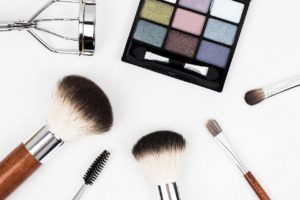While the future of the federal regulatory state is uncertain after the Supreme Court ended Chevron deference in June, retailers ought to give immediate attention to a slew of new regulations affecting their workforce. Chances are, the regulations themselves are not on your summer reading list. Here we provide a top-line summary of four regulatory developments for retailers to keep top of mind as 2024 unfolds. Continue reading “Taking Inventory of Regulatory Developments for Retail Employers in 2024”
The Beauty Regulatory Landscape Is Changing, Here’s the Latest
Duane Morris attorney Kelly Bonner was quoted in an article in WWD on June 25, 2024.
“A big deadline in the beauty and personal care regulatory landscape is fast approaching, with much more to come — although some experts believe this still isn’t enough.
Under the Modernization of Cosmetics Regulation Act, or MoCRA, passed by Congress at the end of 2022, cosmetics companies across the U.S. are required to register their facilities to the Food and Drug Administration by Monday, pushed back from the original deadline of December. They must also list each marketed cosmetic product, including product ingredients, and provide any updates annually. […]
As for what else is still to come, the industry is awaiting the FDA to issue guidance on good manufacturing practices, set to be published in 2025.
On this, Kelly A. Bonner, an associate at law firm Duane Morris, said: “They’re not reinventing the wheel. There are standards out there. It’s just going to be what the FDA say is the standard in the United States.” […]
Bonner, for one, believes the industry has been taking the changes seriously and that the goal for the FDA is to get through the first few years of MoCRA and then take stock.
“Ultimately FDA is going to take a hard look at it and think, ‘OK, what are our enforcement priorities now that we have the data, now that we’ve got everything in place? How do we tweak this? How do we refine this to better assist the industry, to better aid consumers?’”
To read the full text of this article, please visit the WWD website
Breaking Down ‘Clean at Sephora’ Ruling
Duane Morris attorney Kelly Bonner analyzes the recent ‘Clean at Sephora’ case ruling and offers her perspective on the judgment’s potential impact on the clean beauty industry. Read more on the Cosmetics Design website.
No Asbestos in Cosmetic Talc Products Says FDA
On April 5, 2024, the U.S. Food and Drug Administration (FDA) confirmed that its third-party testing of cosmetic talc products for 2023 identified no traces of asbestos in any of the 50 cosmetic samples tested. FDA’s 2023 results, which were reported in a Cosmetics Constituent Update, are consistent with its testing for 2022 and 2021, which also failed to detect asbestos in any of the 50 cosmetic samples tested for those years. Read the full Alert on Duane Morris’ website.
House of Representatives Introduces Ban Water Beads Act
By Paul Rosenlund and Steven Perelman
On November 21, 2023, Representative Robin Kelly (D-IL), Representative Brittany Pettersen (D-CO) and Representative Frank Pallone, Jr. (D-NJ), introduced the Ban Water Beads Act (H.R. 6468) to ban water beads marketed towards children. Water beads are super-absorbent polymer chemical spheres sometimes marketed as toys. This legislation would add water bead products to Section 8 of the existing Consumer Product Safety Act (CPSA) as a banned hazardous product. Therefore, the Consumer Product Safety Commission (CPSC) would be directed to enforce a ban on all water beads marketed as a toy, educational material, or art material or art product. Continue reading “House of Representatives Introduces Ban Water Beads Act”
How Will The EU’s AI Legislation Influence the Fashion Industry?
Europe’s strides in AI legislation have reached a historic milestone as the European Parliament greenlights the AI Act, setting a global precedent for comprehensive regulation in artificial intelligence development and use. This landmark legislation not only shapes the future of technology within the European Union but also holds significant implications for various sectors, including the fashion industry. […]
Duane Morris partner Agatha Liu emphasizes the need for fashion brands to adopt a customer-centric approach, prioritizing transparency and providing consumers with comprehensive insights into AI-driven processes. The Act’s focus on eradicating bias underscores the importance of inclusive AI models within the fashion industry.
Clean Beauty False Advertising Complaint Dismissed by NY Federal Court
As expected (and blogged about previously here), a NY federal court dismissed the “Clean at Sephora” class action complaint, concluding that plaintiff Lindsay Finster “failed to plausibly allege that Sephora misled reasonable consumers when it marketed and sold its ‘Clean at Sephora’ cosmetics,” or that Sephora “made any explicit or implied promises that its ‘Clean at Sephora’ cosmetics were all-natural and free of any potentially harmful ingredients.”
In his fourteen-page opinion, issued today, Judge David Hurd of the U.S. District Court for the Northern District of New York dismissed Finster’s NY GBL §§ 349 and 350 false advertising claims:
Finster’s allegations fall short of the objective standard imposed on GBL §§ 349 and 350 claims. Plaintiff’s complaint leaves the Court guessing as to how a reasonable consumer could mistake the “Clean at Sephora” labeling and/or marketing to reasonably believe that the cosmetics contain no synthetic or harmful ingredients whatsoever. Plaintiff cites to advertising from defendant which states: “consumers who see the Clean seal can be assured that the product is formulated without specific ingredients that are known or suspected to be potentially harmful to human health and/or the environment.” …. Yet, nowhere on the label or in the marketing materials plaintiff cites does defendant make any claim that the products are free of all synthetic or harmful ingredients.
The court also rejected Finster’s breach of warranty claims under the New York Uniform Commercial Code (“UCC”) and Magnuson Moss Warranty Act (“MMWA”) where Finster “cannot point to an express or implicit fact or promise by Sephora that its ‘Clean at Sephora’ cosmetics were free of all synthetic or harmful ingredients.”
The court dismissed Finster’s remaining claims for fraud as insufficiently pleaded because Finster failed to identify an intentionally false material statement, and claim for unjust enrichment .
The court will allow Finster to file an amended complaint on or before March 2029, 2024.
Takeaways
Given Finster’s emphasis on the delta between what the retailer expressly communicated versus what the consumer perceived, it remains to be seen what, if any impact, today’s decision will have on the bigger debate over the meaning of clean beauty. Nevertheless, the decision serves as a reminder that there are competing understandings of clean beauty in today’s cosmetics industry, and that it is important for brands to be transparent about how they are applying the term.
How Beauty Companies Can Mitigate Risks Associated with AI Technology Use
From L’Oreal and Olay to Procter & Gamble and Shiseido, companies across the beauty industry are embracing AI technology with open arms. But what are the risks of incorporating AI technology into business practices, and how can beauty companies protect themselves? […]
For answers to these questions and a closer look at this rapidly growing segment of the beauty industry, CosmeticsDesign spoke to attorneys Kelly Bonner and Agatha Liu of Duane Morris LLP, for their insights and experience. Kelly Bonner’s practice focuses on litigation risk and regulatory issues affecting businesses in the cosmetics and personal care industries, as well as cross-jurisdictional and complex commercial disputes involving FDA-regulated and consumer-branded products, and Agatha Liu has assisted clients with AI-related legal needs.
Continue reading “How Beauty Companies Can Mitigate Risks Associated with AI Technology Use”
Balancing Innovation and AI Regulations in the Beauty Market
Duane Morris’ Agatha Liu and Kelly Bonner were interviewed by Personal Care Insights about the challenges and opportunities beauty companies face while using AI to appeal to younger consumer demographics. Below is an excerpt of the article.
How does the competitive landscape of the beauty industry impact businesses’ use of AI technologies, especially when it comes to targeting younger consumer segments?
Bonner: The highly competitive nature of the beauty industry, with its desire to appeal to younger consumers, is certainly a key driver in beauty brands embracing AI tools to offer enhanced customer shopping experiences.
Can you provide some context about US AI regulations that the beauty industry should know? What do you expect is coming, especially considering the AI Act in the EU?
Liu: The EU AI Act imposes specific obligations on the providers and deployers of so-called high-risk AI systems, including testing, documentation, transparency and notification duties.
To read the full interview, please visit the Personal Care Insights page.
Beauty Is in the AI of the Beholder
Duane Morris partner Agatha Liu spoke with Personal Care Insights on potential risks, including personalization, appearance bias and regulatory compliance, as beauty companies integrate AI technologies.
What steps do you advise beauty companies to take to reduce the legal risks that could arise from implementing AI?
Liu: Very generally, companies should understand the technology they’re adopting and implementing and balance the benefits of the technology against potential legal pitfalls. That means liaising with outside counsel and privacy teams to obtain clarity and mitigate risks. […]
Read the full interview on the Personal Care Insights website.

